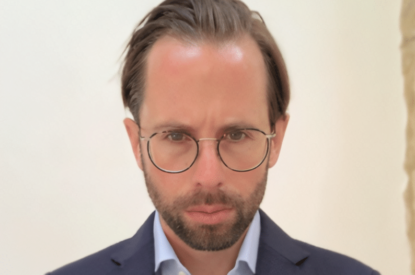Legislation
UK – Top NHS clinicians demand new ‘addiction levy’ on gambling industry
By Phil - 14 March 2022
The most senior NHS clinicians treating gambling addiction today call for the gambling industry to face a new multimillion-pound statutory levy to fund the prevention and treatment of gambling-related harm.
The call comes from Professor Henrietta Bowden-Jones, the director of the National Problem Gambling Clinic, and Dr Matt Gaskell, clinical lead for the NHS Northern Gambling Service.
In a paper for the Social Market Foundation think-tank, the clinicians propose the creation of a new independent health board to oversee the spending of levy money, which could come to tens of millions of pounds a year. That board should be led by the Department of Health, not the Department for Digital, Culture, Media and Sport.
The Government should also set a clear target for reducing gambling-related harm, cutting it by half in five years, the SMF paper says. (See Notes for full details of recommendations.)
The clinicians’ paper was jointly written with Dr James Noyes, a senior fellow of the SMF who has advised Labour and Conservative politicians on gambling policy.
The SMF paper comes as ministers prepare to unveil a long-awaited review of Britain’s gambling laws.
The SMF paper argues that current arrangements for industry support for addiction services are failing badly. At present, some gambling companies make voluntary contributions to approved service providers, with the bulk of their money given to a single charity, GambleAware.
NHS England in February severed its links with GambleAware due to concerns over the group’s perceived connection to the gambling industry.
The legal power to impose a levy on the gambling industry has existed since 2005, but has never been used as successive governments have trusted the industry to support harm-reduction work voluntarily.
The SMF paper sets out a detailed analysis of how that approach is failing victims of gambling-related harm and must be replaced.
The authors argue that the Department for Digital, Culture, Media and Sport has resisted repeated calls from a wide range of expert stakeholders to introduce a statutory levy.
They say the current voluntary funding system lacks consistency, transparency, and accountability.
The report states: “Significant funds (in excess of £100m) have been pledged by the largest gambling operators to provide treatment services, but these funds are not being distributed in a fully independent or efficient manner. A long-term strategy of prevention and recovery is not properly integrated within the framework for the funding of research, education, and treatment. At present, there is no clear target for harm reduction (in terms of quantity, timescale, or cost).
Criticising the current regime, the experts write: “The current voluntary system has no integration of NHS services, no consistency in funding decisions, no independent evaluation of long-term impact or regulation via the Care Quality Commission, no coordinated oversight from research councils over research into harm, and serious questions have been asked about the independence of this voluntary system from the influence of the gambling industry.”
“Furthermore, decisions about the funding of healthcare services are not overseen by experts at the Department of Health and Social Care, as would be expected, but rather officials at the Department for Digital, Culture, Media and Sport.”
Their paper lays out the case for the introduction of a statutory levy drawn from the revenues of the gambling industry to fund the prevention, research, education, treatment, and long-term reduction of gambling-related harm.
The levy should be overseen by a new Joint Advisory Levy Board led by the Department of Health and Social Care. It should act in consultation with academics, clinicians, independent service providers, the relevant research councils, the Gambling Commission and its advisory board, and stakeholders from the Department for Digital, Culture, Media and Sport and the Department for Education.
The new Board should carry out a full assessment of the evidence on gambling harm and set the level of the levy accordingly, the paper says. The levy should be in place in 2024 and funds used in pursuit of a clear target for reducing gambling-related harms by 50% over five years.
Dr James Noyes, Senior Fellow at the SMF and co-author of the paper, said: “In 2020, a House of Lords Select Committee report stated that it is ‘beyond belief’ that DCMS has steadfastly refused to introduce a statutory levy on the gambling industry. Yet two years on, we have still not seen any progress. This is despite the fact that dozens of leading clinicians, academics, and parliamentarians have called for an end to the current voluntary arrangement between DCMS, GambleAware, and the gambling industry.”
“The Government’s benchmark of success for the voluntary system has been undermined by the fact that the industry reneges on its own funding pledges. No system which relies on the good will of the industry can be called truly independent. The current system is broken, and lacks consistency, transparency, and accountability. The Gambling Act Review White Paper is a unique opportunity to fix this broken system and put harm prevention and treatment where it belongs: under the leadership of the Department of Health and Social Care, funded through a proper statutory framework.”


